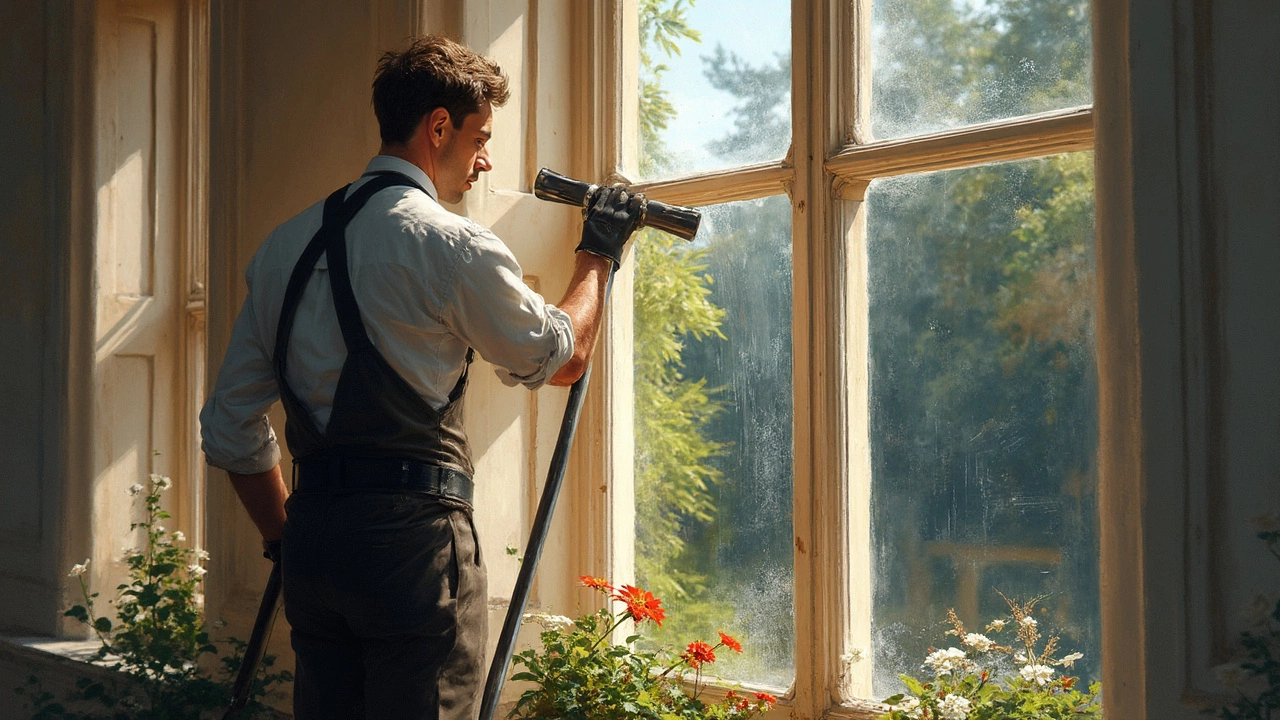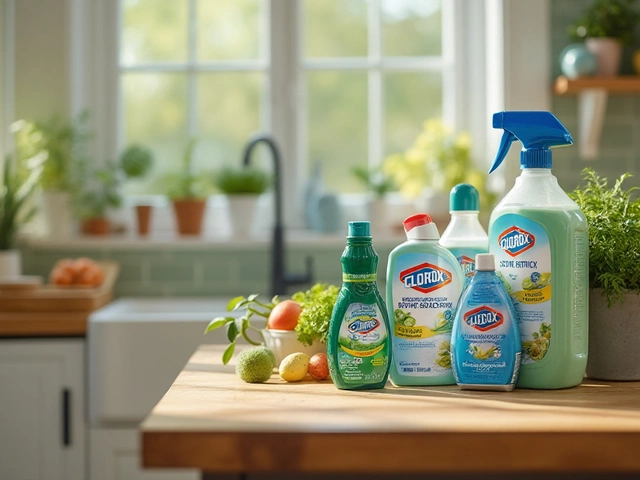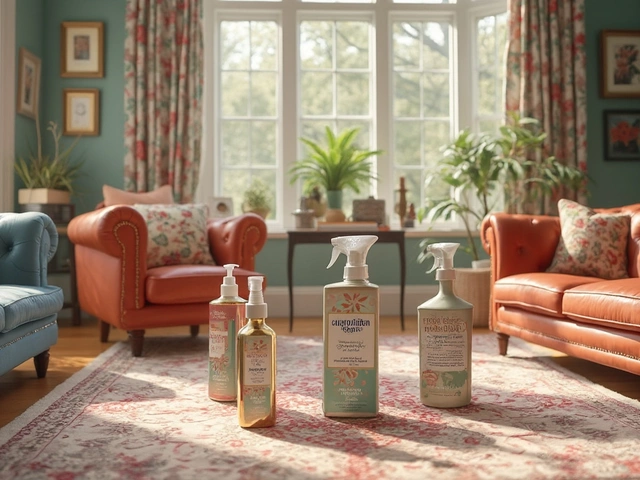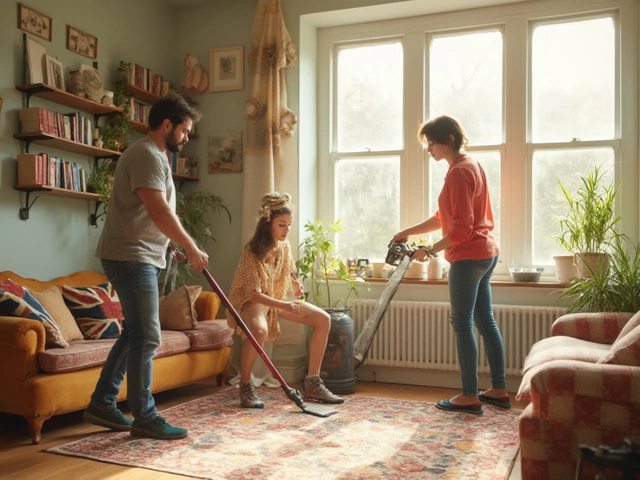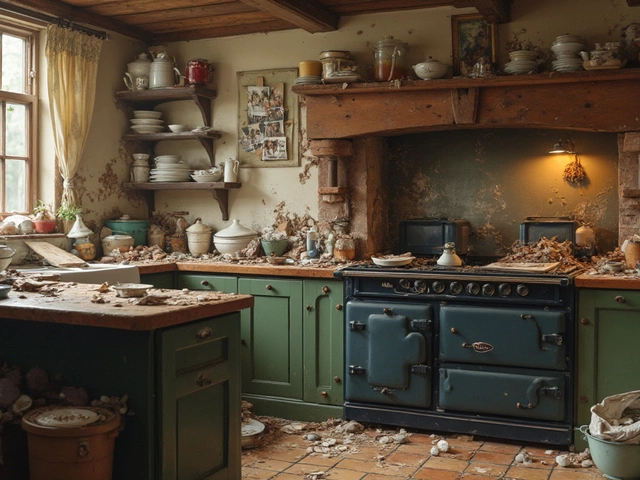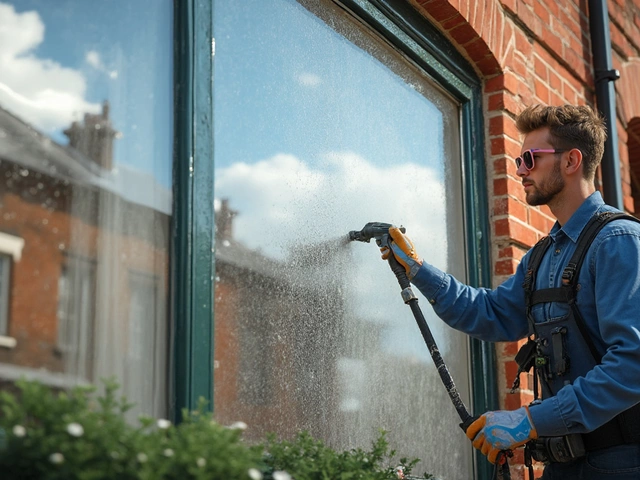Okay, so here's a question we’ve all probably asked ourselves at some point: why don't window cleaners use soap? Seems counterintuitive, right? You'd think soap would be the ultimate cleaner for all those smudgy windows. But guess what? It’s not. It turns out that soap can actually leave more mess behind. Those annoying streaks we all hate? Yeah, blame the soap.
Professional window cleaners have figured this out ages ago. They opt for other solutions that make glass sparkle without any of the soap-related downsides. How do they do it? With a little know-how and the right tools, you can get those windows shining like a pro too.
The Problem with Soap
You've probably thought soap is the ultimate grime-buster, but when it comes to window cleaning, soap isn't actually your best friend. Why? Well, let’s start with the basics. Soap can leave a film or residue behind that’s super annoying. Ever notice those stubborn streaks on your glass after a wash? That's mostly thanks to the soap.
Soap contains fats and oils that can cling to the glass surface, causing streaks when it dries. This is especially noticeable on windows that catch a lot of direct sunlight, where every streak sticks out like a sore thumb. So, while soap cleans off the dirt, it leaves something of its own behind, making the windows look less than perfect.
Besides streaks, using soap can also lead to film build-up over time, especially if not rinsed thoroughly, which just attracts more dirt. And who has time to rinse windows over and over? No one. Also, if the water you’re using isn’t soft, soap can react with minerals in hard water to create even more residue.
It’s no wonder professional window cleaners steer clear of it. They've moved on to better tools and products that don’t mess up the view. So if you want fresh, crystal-clear windows, it might be time to rethink the role of soap in your cleaning routine.
Alternatives to Soap
So, if soap isn't the secret to perfectly clean windows, what is? Well, it turns out there are a few clever alternatives that the pros swear by. One popular choice is a mixture of white vinegar and water. Vinegar, with its acidic nature, cuts through grime without leaving behind any residues that cause streaks.
If vinegar isn't your jam, you can also try using a bit of rubbing alcohol with water. Alcohol evaporates quickly, which means it’s less likely to leave any streaks behind. In fact, lots of glass cleaners you find in stores contain alcohol for this very reason.
Another popular pick among professional window cleaners is a drop of dishwashing liquid mixed with gallons of water. And when I say a drop, I really mean just a tiny bit. The soap is just enough to pick up dirt without causing the filmy aftermath.
For those a tad more adventurous, there are commercial cleaning solutions specifically designed for a streak-free finish. These can be super handy, especially if you’re dealing with larger glass surfaces.
Here’s a quick list of alternatives to consider when you're next on window duty:
- White vinegar and water
- Rubbing alcohol and water
- A drop of dishwashing liquid in water
- Commercial glass cleaners
Now, here's something interesting: a study by the National Home Cleaners Association found that vinegar-based solutions were used by almost 60% of professionals for window cleaning. Why? Because it's cheap, eco-friendly, and seriously effective.
So the next time you're reaching for that soapy sponge, remember these alternatives and you'll have those windows gleaming in no time!
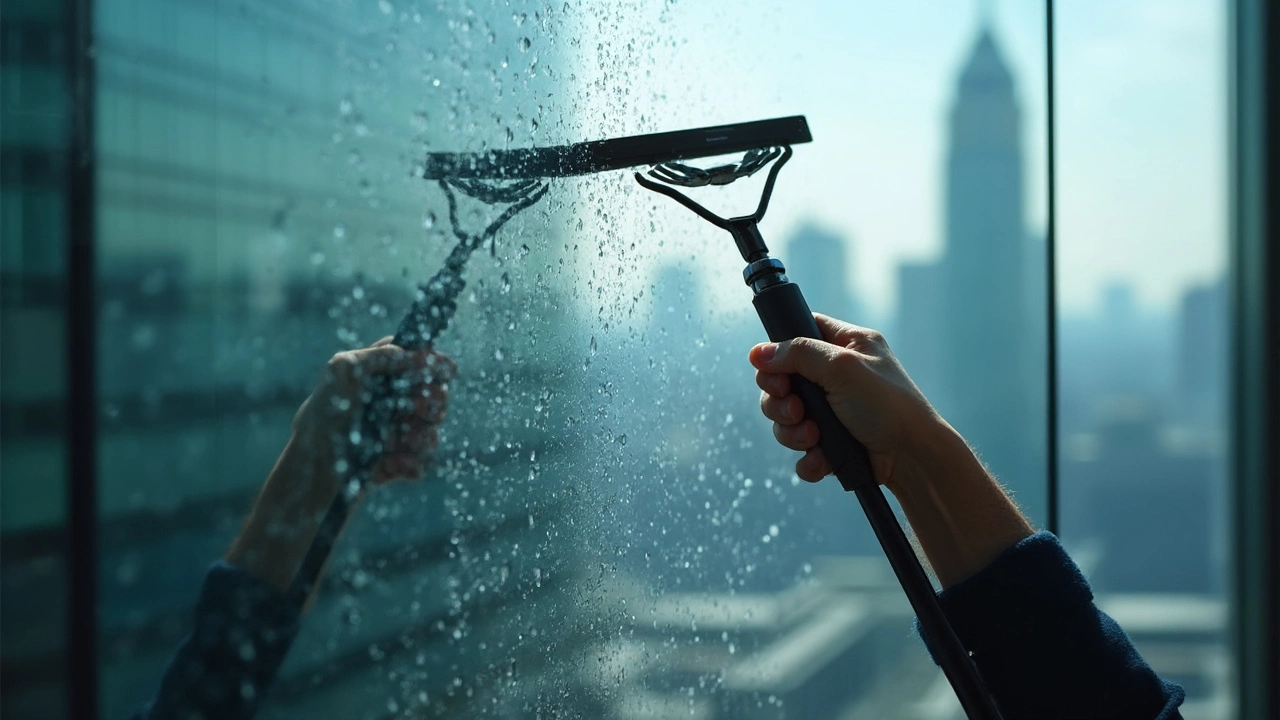
Tips for Streak-Free Shine
Getting those windows to shine without a single streak is like achieving cleaning nirvana. Seriously, it’s all about the small tips and tricks that make a big difference. First up, timing matters. Clean your windows on a cloudy day. I know, it sounds weird, but on sunny days, the cleaning solution dries too fast, leaving streaks behind.
And speaking of cleaning solutions, stay away from regular soap. Instead, make a simple mix at home using vinegar and water. Yeah, the old vinegar trick works wonders! Aim for a half-and-half ratio. The vinegar cuts through grime without leaving any streaks.
Here’s another pro tip: use a microfiber cloth or a squeegee. They’re like the Jedi of cleaning tools. Microfiber is gentle yet effective, and a squeegee delivers that smooth finish. And remember, work from top to bottom. Gravity is on your side here, folks.
"A professional window cleaner once told me, 'It’s not about working harder, it’s about working smarter.' And using the right technique makes all the difference."
Let’s not forget about those pesky corners and edges. They can trap dirt and get neglected during cleaning. A cotton swab or an old toothbrush can be your best friend for those spots.
Finally, consistency is key. Make window cleaning a regular habit. Maybe every couple of months or so, depending on where you live. The more often you do it, the less time you'll spend scrubbing away grime.
Tools of the Trade
Getting that perfect streak-free finish isn't just about elbow grease. It's about using the right tools, and those pros have it down to a science. Forget about a bucket of soapy water—here’s what they rely on.
First up, the mighty squeegee. This is the go-to for professional window cleaning. The squeegee gets rid of water without scratching or smudging the surface. With its rubber blade, it smoothly wipes away cleaning solutions, leaving windows crystal clear.
Next, microfiber cloths are a game-changer. These aren’t just any cloths; they’re designed to pick up dust and absorb liquids like nobody’s business. They don't leave lint or streaks, which is key for a gleaming streak-free shine.
Then there’s the window scrubber or washer. This tool looks like a squeegee but with a soft head, often covered in microfiber or other absorbent material. It’s used to wash and loosen dirt before the squeegee does its magic.
For those hard-to-reach spots, extension poles are essential. A good pole can help you reach high windows without the risk of teetering on a ladder. This keeps the job safe and efficient.
Check out the typical toolkit experts use. It runs the gamut from basics to more advanced gear:
- Squeegees with replaceable rubber blades
- Microfiber cloths and scrubbers
- Extension poles
- Cleaning solutions made for windows
- Utility buckets that are easy to carry and use
In the realm of window cleaning, these tools really make all the difference. And who knew that avoiding soap actually made the job simpler and more effective?
